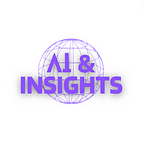AI for Social Good
Careers in Ethical AI Development
As Artificial Intelligence (AI) becomes increasingly integrated into various aspects of our lives, the importance of ethical AI development has become paramount. AI technologies have the potential to address critical societal challenges, but they also carry the risk of unintended consequences and bias. The demand for AI professionals who prioritize ethical considerations in AI development is growing rapidly. In this blog, we will explore the significance of ethical AI development and discuss the various career opportunities in AI ethics research and implementation.
The Importance of Ethical AI Development:
AI technologies can have a profound impact on individuals, communities, and the environment. It is crucial to ensure that these technologies are developed and deployed with strong ethical principles to avoid harmful consequences and safeguard the well-being of society. Key reasons why ethical AI development is of utmost importance include:
- Mitigating Bias and Discrimination: Ethical AI development seeks to identify and address bias in AI algorithms to ensure fair treatment and equal opportunities for all individuals, regardless of their race, gender, or other characteristics.
- Privacy and Data Protection: Ethical AI professionals prioritize data privacy, ensuring that AI systems handle sensitive information responsibly and securely.
- Transparency and Accountability: Ethical AI development promotes transparency in AI decision-making processes and holds AI systems accountable for their actions.
- Social Impact: AI solutions developed with ethical considerations aim to create a positive social impact by addressing critical challenges such as healthcare, education, climate change, and poverty.
- Trust and Adoption: Ethical AI inspires trust among users and stakeholders, fostering greater adoption of AI technologies for positive societal transformation.
Roles in AI Ethics Research and Implementation:
- AI Ethics Researcher: AI ethics researchers explore the ethical implications of AI technologies, studying the impact of AI on society and identifying potential ethical challenges. They publish research papers, contribute to academic discussions, and propose frameworks for ethical AI development.
- AI Ethics Officer: Larger organizations and tech companies may have AI ethics officers or teams responsible for ensuring that AI projects align with ethical guidelines. They collaborate with AI developers and decision-makers to address ethical concerns and integrate ethical principles into AI initiatives.
- AI Policy Analyst: AI policy analysts examine the legal and regulatory aspects of AI development and deployment. They work with policymakers to formulate guidelines and regulations that promote responsible and ethical AI usage.
- AI Fairness and Bias Mitigation Specialist: These professionals focus on ensuring that AI systems are unbiased and fair by implementing bias detection techniques and fairness-aware algorithms.
- AI Product Manager — Ethical AI Solutions: AI product managers with a focus on ethical AI solutions are responsible for driving the development of AI products that prioritize ethical considerations and social impact.
As AI continues to reshape our world, the significance of ethical AI development cannot be overstated. Professionals who are well-versed in AI ethics research and implementation are becoming increasingly sought after. Careers in ethical AI development provide a unique opportunity to shape AI technologies that prioritize human welfare, fairness, and accountability. By embracing ethical principles in AI development, we can collectively harness the potential of AI for social good and create a more inclusive and equitable future.
